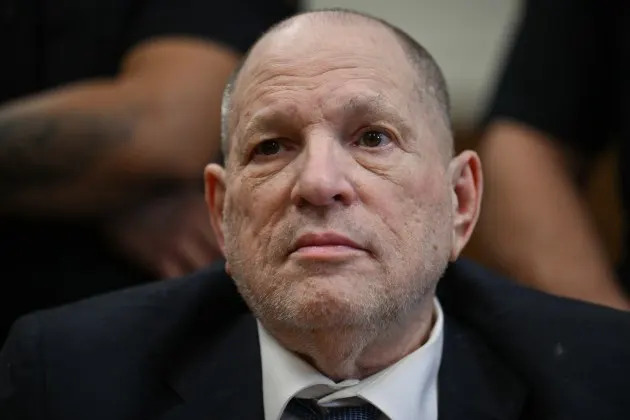Candace Owens’ Controversial Prison Interview with Harvey Weinstein: Key Takeaways and Reactions
Candace Owens, a prominent conservative commentator, is no stranger to controversy. Her recent on-camera interview with disgraced Hollywood producer Harvey Weinstein from prison has reignited heated debate across the media. In this article, we dive into the key highlights from their conversation, examine the claims made by both parties, and consider the wider public reaction.

The Interview: Weinstein Speaks Out
The exclusive interview saw Candace Owens questioning Weinstein about the allegations that led to his conviction and historic downfall. Weinstein continued to assert his innocence, steadfastly denying the most serious accusations against him. He remarked, “I did not commit these crimes. I swear that before God and the people watching now and on my family.”
Weinstein claimed he was “wrongfully convicted,” referencing the appeals court’s decision to overturn his 2020 conviction on procedural grounds. He described his actions as mistakes—admitting to infidelity, but disputing any illegal conduct. The 73-year-old also named Hollywood figures Gwyneth Paltrow, Rose McGowan, and Ashley Judd as accusers, responding to each claim in detail. To Owens, he insisted that the accusation involving Paltrow was “a complete fabrication.”
For a comprehensive breakdown of their discussion and Weinstein’s defense, you can read the full report on Yahoo News.
Owens’ Approach and Reaction
Candace Owens did not shy away from expressing her doubts about the justice system’s handling of the Weinstein case. She stated that reviewing the case “made me lose faith in the judicial system.” During the interview, Owens pressed Weinstein to clarify specifics, prompting confessions and emotional moments. Owens has publicly maintained that, while she does not view Weinstein as a moral person, she remains unconvinced that he is a rapist.
In her role as interviewer, Owens brought both skepticism and sympathy. This nuanced approach has divided critics and viewers. For more details and commentary from the interview, refer to the coverage by Daily Mail Online.
Public Response and Media Impact
The Owens-Weinstein interview has sparked widespread debate. Many see it as an attempt to give Weinstein a platform at a crucial moment in his ongoing legal battles. Others criticize Owens for not challenging certain assertions more vigorously. Regardless of stance, the conversation underscores the polarizing nature of both figures.
Weinstein, once a powerful Hollywood producer, is currently facing retrial after his conviction was overturned by an appeals court. The case remains a focal point of the #MeToo movement and continues to raise questions about accountability, media narratives, and the role of high-profile interviews in shaping public opinion.
Conclusion: A Conversation That Resonates
The interview between Candace Owens and Harvey Weinstein demonstrates the power—and controversy—of media access to convicted figures. As the debate continues, the public and legal communities will watch closely to see what impact, if any, this emotional exchange will have on future proceedings. To stay updated or to explore Owens’ perspective further, follow her official channels or read detailed reports from established outlets. This story is a reminder of how conversations around justice and accountability remain as relevant as ever.